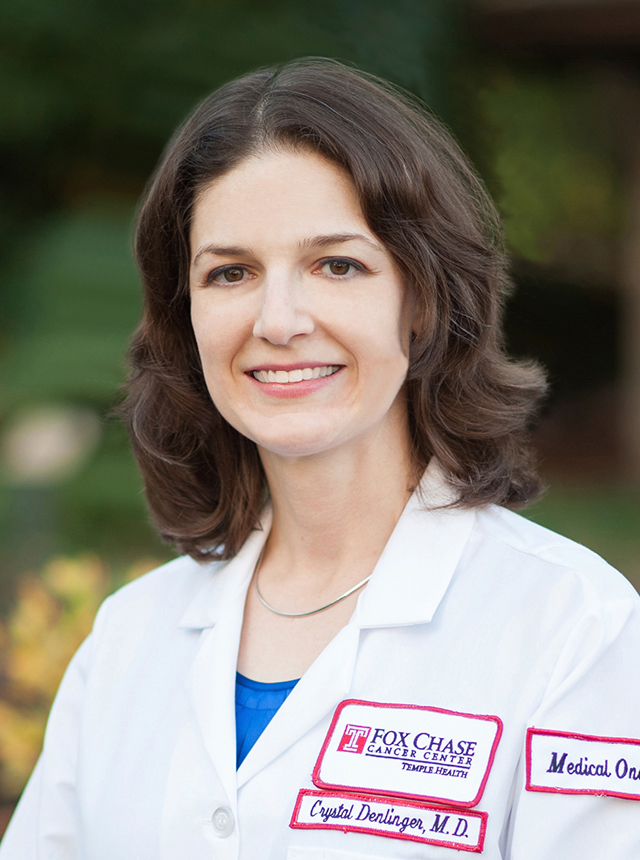PHILADELPHIA (June 15, 2016) — June is National Cancer Survivorship Month. This month, Fox Chase Cancer Center physicians celebrate individuals who have overcome cancer while emphasizing the importance of staying healthy after completing cancer treatment.
According to the National Cancer Institute, there are about 14.5 million cancer survivors in the United States, which represents more than 4% of the population. Sixty percent of survivors are currently 65 years of age and older. The number of cancer survivors is projected to increase by 31% (to almost 19 million) by 2024.

“Advances in cancer prevention; early detection through screening; new treatments like targeted therapies; and the improved management of treatment side effects have certainly contributed to improved outcomes,” says Crystal S. Denlinger, MD, medical oncologist at Fox Chase. “However, a person’s cancer journey doesn’t end with treatment. Survivors require ongoing care and support to address their concerns regarding the effects of cancer.”
Survivors often face physical, emotional, psychosocial, spiritual and financial challenges as a result of their cancer diagnosis and treatment. “Whether a patient returns to his or her oncologist or primary care physician for follow-up care, both physicians should understand the patient’s individualized survivorship care plan,” says Denlinger. This plan should include a detailed summary of previous treatments with a plan for recommended follow-up care. It should also include information and management recommendations for any lingering treatment effects or risks of developing late effects of cancer treatment.
Emotionally, survivors may be faced with feelings of distress, anger, sadness, change in role or body image and concerns regarding cancer recurrence. These feelings can lead to depression or anxiety. Socially, the effects of one’s cancer experience can impact personal relationships with family, friends and co-workers. More practical issues (ie, financial concerns, return-to-work needs and health insurance coverage) may be equally as stressful. “I urge patients to talk openly and honestly with their health care team about their concerns so their worries can be properly addressed,” says Denlinger.
There are many resources available to help guide survivors. The National Cancer Institute’s Office of Cancer Survivorship is dedicated to enhancing the length and quality of life for survivors; addressing their unique needs; and providing support for survivorship research. Many cancer centers conduct survivorship research and offer specialized clinics to provide care and services to survivors. Community organizations, such as LIVESTRONG and the American Cancer Society, offer information and resources on survivorship. Many community foundations are also dedicated to survivorship efforts within specific cancer types.
To learn more about survivorship services at Fox Chase, visit FoxChase.org.
SOURCES
http://www.cancer.org/treatment/survivorshipduringandaftertreatment/survivorshipcareplans/index
http://www.cancer.gov/about-cancer/coping/survivorship/new-normal
http://cancercontrol.cancer.gov/ocs/statistics/statistics.html